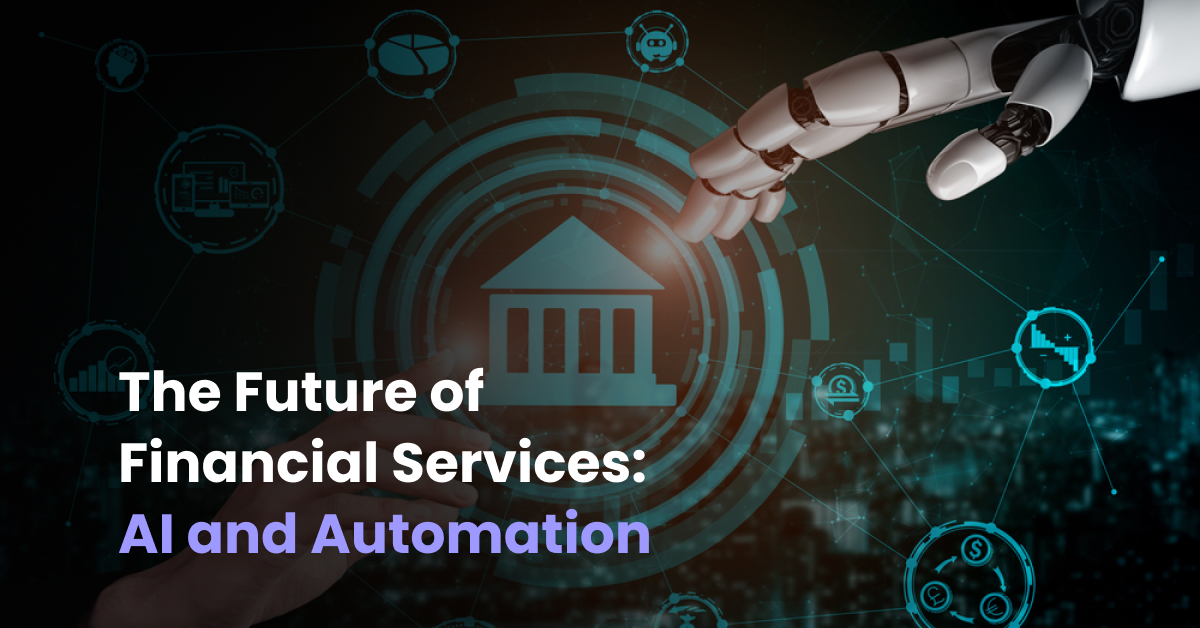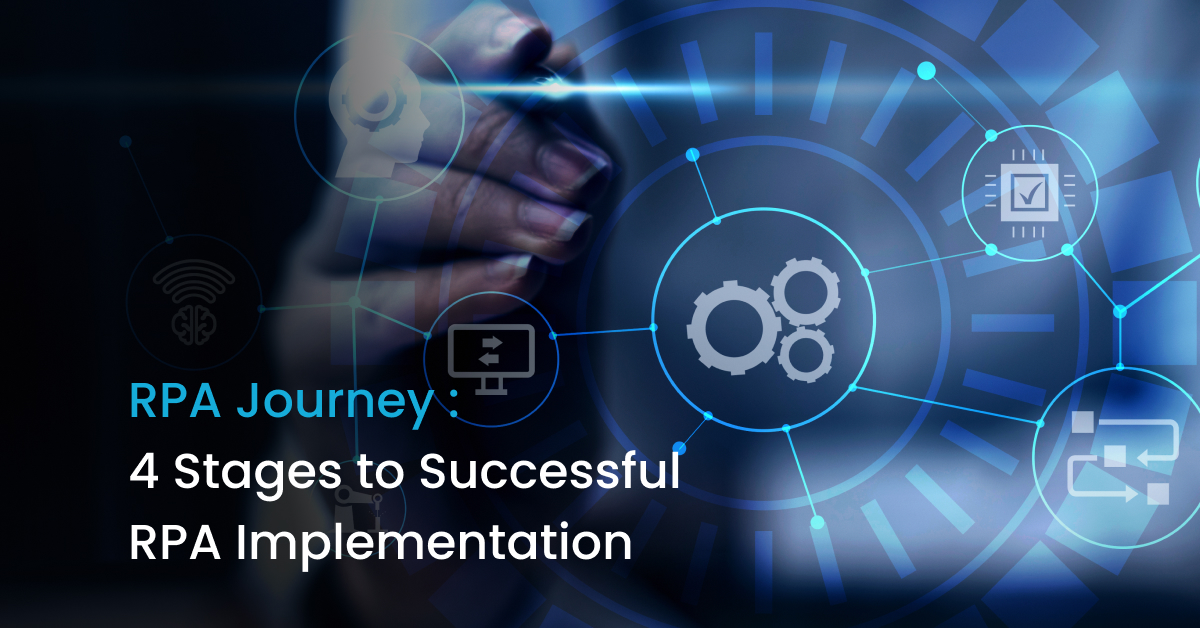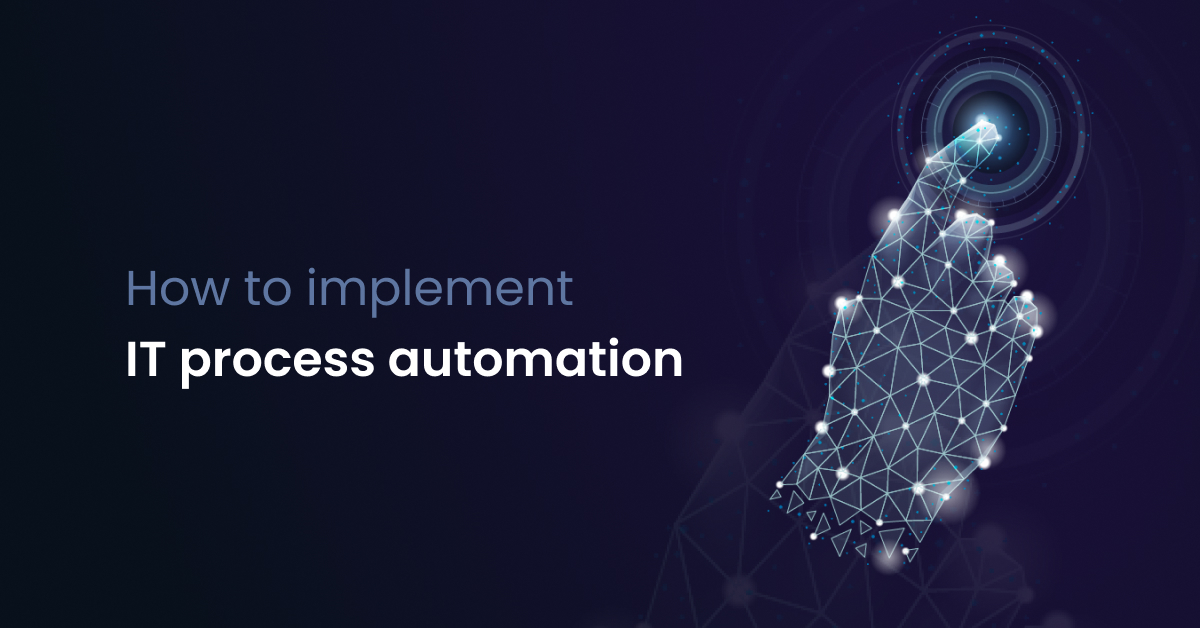The adoption of automation and artificial intelligence (AI) in the financial services industry has triggered a profound technological revolution. As we stand at the crossroads of the financial sector and cutting-edge technology, it is imperative to fully comprehend the transformative potential that AI and automation bring. In this comprehensive blog post, we embark on a journey deep into the heart of the financial industry, exploring how these innovative technologies are reshaping the landscape, influencing customer service, revolutionizing risk management, and enhancing operational efficiency.
Navigating Customer Experience with AI in Financial Services
In today’s digital age, customer service, traditionally considered the lifeblood of financial institutions, is undergoing a seismic shift. Customers now demand round-the-clock accessibility and personalized services. It’s not just a luxury; it’s an expectation. Enter AI, the driving force behind this transformation.
Picture this scenario: you need assistance with your banking inquiries, and instantly, a virtual assistant is at your service. Have you ever contemplated how integrating AI chatbots into your business strategy can revolutionize your operations? The financial industry is already exploring this avenue. AI-driven chatbots, equipped with advanced text-to-speech technology, engage in natural interactions within customer support channels. It’s like having an astute, knowledgeable friend available around the clock.
Moreover, in times of crisis, AI steps up to the plate. AI in financial services can monitor multiple data sources, including official emergency channels and alert systems. Through a sophisticated customer engagement engine, financial institutions can effectively connect with customers affected by disasters, extending the necessary support and assistance where it’s most needed.
Risk Management: AI’s Role in Navigating Regulatory Waters
Regulations and compliance are integral aspects of the financial sector. In 2020, the Global Regulatory Outlook highlighted that a staggering 33% of banks allocated or had plans to allocate more than 5% of their annual budgets to compliance. This presents a remarkable opportunity for AI in financial services to shine.
Consider a typical scenario where a prominent bank employs AI for outlier detection. The objective is to validate models calculating investment projections. AI accomplishes this task with remarkable precision, identifying potential areas for enhancement that might be overlooked by traditional model validation techniques. It serves as a transformational force in the realm of risk management.
However, despite the vast potential, AI in legal and compliance remains underutilized. According to Deloitte’s State of AI in the Enterprise, 3rd edition, a mere 4% of respondents within the financial services sector reported using AI for legal and compliance purposes. This statistic underscores the untapped potential within this domain, making it an area ripe for exploration and innovation.
Operational Efficiency: The AI Revolution in Streamlining Processes
Operational efficiency forms the backbone of any successful financial institution. It’s here that AI steps in, offering automation and standardization of processes, leading to reduced operating costs and a streamlined workflow. The end result is enhanced operational efficiency that unlocks a world of possibilities.
Have you ever contemplated whether your business efficiency is dropping due to a lack of automation? In the realm of the finance industry, automation is akin to having a team of experts tirelessly working behind the scenes. For instance, a prominent bank employs speech analytics to assess calls related to loan repayment deferrals. The beauty of AI lies in its ability to detect vulnerabilities, flag interactions requiring manual review, and identify customers in need of additional support. This not only streamlines operations but also significantly enhances the overall customer experience.
Challenges of AI Implementation: Addressing Bias and Assumptions
While the potential of AI in financial services sector is undeniable, it comes with its own set of challenges. AI relies on historical data to make predictions and forecasts, and this is where the challenge lies. It often assumes that past patterns will persist into the future. The risk of bias emerges when AI models are constructed on specific subsets of data, potentially excluding certain groups. This bias can impact the accuracy of predictions and raise broader questions in areas such as credit scoring.
For instance, credit scoring models have grappled with predictability issues. Instances of incorrect mortgage approvals and rejections are just one facet of this challenge. These issues are rooted in the inherent bias within the models, coupled with a deficiency in sufficient data pertaining to certain socioeconomic and minority groups. These challenges give rise to concerns related to fairness and ethics in AI implementation.
Selecting the Right AI Use Cases: Navigating the Path to Success
The selection of appropriate AI use cases is pivotal within the financial services domain. These use cases should be characterized by their small and focused nature, promoting a “fail-fast” culture. It’s all about learning and evolving as you progress. Once you’ve identified potential use cases, the next step involves assessing and prioritizing them based on their business impact and technological feasibility.
These use cases can be grouped into several tiers: the “No Brainers,” which are marked by high feasibility and business impact, driving the most substantial business value; the “Enhancers,” which may have lower business impact but are easy to implement, resulting in enhanced efficiency and cost reduction; the “Transformers,” characterized by breakthrough ideas that offer significant business value but necessitate greater effort; and the “Marginals,” which have limited business impact and feasibility and are best deprioritized.
Proven AI Technologies: The Power of Classification
A common misconception is that AI use cases necessitate cutting-edge technology. The reality is that the financial services sector has already been utilizing proven AI technologies for several years. A prominent example is classification problems, which are pervasive within the banking sector. Classification algorithms learn from categorized training datasets and apply this knowledge to classify new data into specific categories.

A Transformative Case Study: AI-Driven Call Center Compliance Automation
To gain insight into the real-world impact of AI in financial services, consider a case study involving a leading Australian bank. The bank’s objective was to ensure compliance during secured lending phone calls with customers. This presented a significant challenge, given the need to efficiently validate thousands of customer interactions.
The solution emerged in the form of AI-driven compliance automation. By applying AI techniques to these calls, the bank achieved remarkable outcomes:
- Full review coverage of 100% of customer interactions, a feat that traditional review methods could not accomplish.
- Effective redirection of review teams to high-risk call segments, ensuring that human review efforts were focused where they mattered most.
- An 85% reduction in manual review points, streamlining the compliance process.
- Valuable insights into the quality of customer interactions, enabling coaching and improvement of call center and customer care agents.
- Enhanced customer experience, with insights benefiting multiple teams across the organization.
Ensuring Ethical AI Implementation
The responsible and ethical implementation of AI in financial services stands as a critical aspect of its integration. It is essential to guard against unfair bias and ensure that AI models do not perpetuate discrimination. Quantitative fairness analysis of key models and training data, particularly concerning protected features such as the gender of the call center agent, is paramount.
The initial application of AI techniques to this area of the bank was considered a Transformer use case. Yet, given the positive results achieved and the high impact on the bank’s operations, a broader roll-out of the technology to other areas became a “No Brainer.”
Key Takeaway: Navigating the Future of AI in Financial Services
As we steer our way through the future of automation and AI in financial services, a key takeaway emerges. Prioritizing use cases based on their business value and feasibility is imperative. It’s a journey that requires clear communication, phased implementation, and an unwavering focus on the customer experience. By adhering to these principles, financial institutions can retain their position at the forefront of innovation within this dynamic sector.
FutureX – Pioneering the Future of Automation and AI in Financial Services
The intertwining of AI and machine learning in financial services and the role of automation in the finance industry is a transformational synergy poised to revolutionize the banking sector. As we delve deeper into this digital frontier, it becomes evident that FutureX is at the forefront, offering innovative solutions that cater to the evolving needs of financial institutions.
The integration of AI in financial services has transcended the realm of choice and now stands as a compelling necessity. With FutureX’s expertise, institutions can harness the power of AI to gain profound insights into customer behaviour, predict market trends, and mitigate risks effectively. The future of AI in financial services is promising, and FutureX is here to pave the way.
Automation, on the other hand, serves as the cornerstone of efficiency and productivity in the finance industry. FutureX provides tailored solutions that streamline operations, reduce manual tasks, and empower financial organizations to focus on strategic decision-making and delivering exceptional customer experiences. This is the future of automation in finance.
The financial services sector is on the brink of a technological transformation. Embracing this future necessitates a strategic, innovative, and responsible approach to implementing AI and automation. FutureX stands as a dedicated partner, equipped to lead financial institutions toward this promising horizon.
With FutureX’s expertise, institutions can navigate this transformative journey with confidence, remaining at the forefront of industry advancements. The financial services landscape is evolving, and FutureX is here to shape that evolution. The future is now, and it is filled with boundless possibilities.
Let us partner to transform the world of financial services, driven by the power of AI and automation.
























